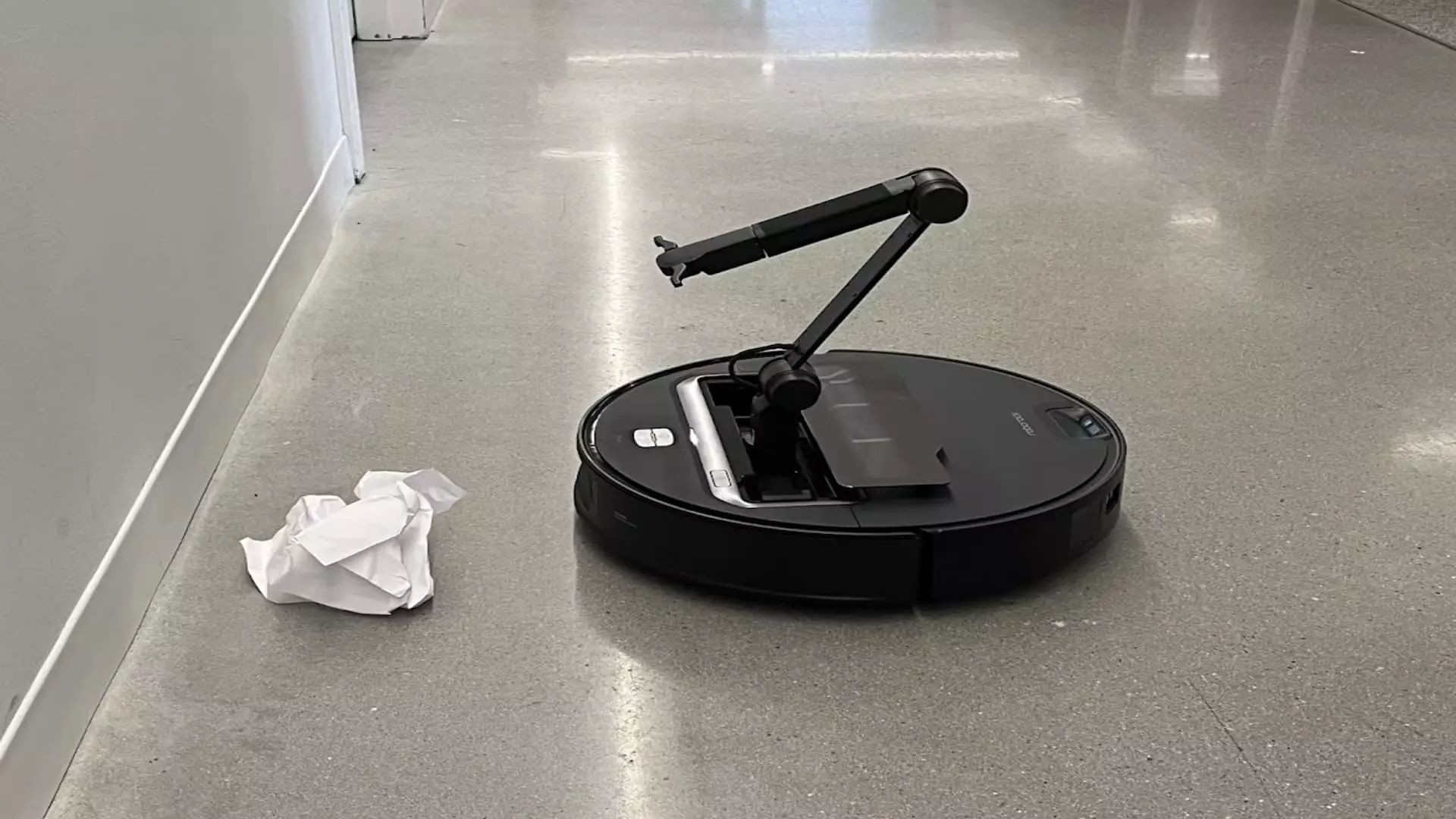In the ever-evolving realm of home automation, Roborock, a Chinese manufacturer renowned for its robot vacuum cleaners, unveiled a groundbreaking model poised to revolutionize household cleaning. At an event befitting the lead-up to the prominent Consumer Electronics Show, the company introduced the Saros Z70, which boasts a unique folding arm mechanism designed specifically for the retrieval of common household obstructions. This advanced feature, underpinned by artificial intelligence, signifies a remarkable progression in the functionality of robotic vacuums, aiming to elevate them from mere gadgets to indispensable household tools.
According to Roborock’s President, Quan Gang, the integration of AI signifies a transformative moment for robot vacuums. In an interview with CNBC, Quan expressed optimism that within the next three years, robot vacuums could attain the same level of essentiality as washing machines. His assertion hinges on the premise that artificial intelligence serves as a catalyst for this change, thereby enhancing the operational capabilities of these devices. By automating the clearance of items like socks and towels, the Saros Z70 embodies a future where AI plays a central role in daily living.
The innovative capabilities of the Saros Z70 stem from sophisticated AI algorithms developed by Roborock, enabling the cleaner to identify and navigate around common household impediments. Items weighing up to 300 grams can be effortlessly detected and removed, showcasing a synergy of engineering and software refinement. The company’s commitment to this technology underscores the profound implications of intelligent robotics in streamlining household chores.
Scheduled for release in major global markets, the Saros Z70 is anticipated to set the stage for broader acceptance of robot vacuums. Historically, the market has witnessed a slow adoption rate, with penetration in developed regions hovering slightly over 10% and significantly lower in developing countries. This situation represents both a challenge and an opportunity for growth. Armed with AI, Roborock aims to harness the untapped potential and transform these statistical barriers into pathways for increased sales and acceptance.
Roborock is not alone in the increasingly crowded marketplace of robotic vacuums. Competitors such as iRobot and Ecovacs are also vying for recognition, each offering distinct features that cater to different consumer needs. The Verge and Wired have praised various Roborock models as best-in-class products, highlighting innovations such as self-emptying capabilities and adaptive cleaning modes. The S8 MaxV Ultra, with its high price point of $1,799.99, positions itself at the luxury end of the market, while models like the Qrevo S provide more affordable options at approximately $800.
Despite the premium pricing of Roborock’s products, consumer interest seems unwavering, as reflected in the company’s significant stock performance following the announcement of the Saros Z70. However, analysts note that the competition remains fierce, with affordable alternatives threatening to encroach upon Roborock’s market share.
Understanding that the future of robotic vacuums lies in continuous innovation, Roborock dedicated a substantial portion of its revenue to research and development. The company’s commitment—spending 9.1% of its operating revenue on R&D in the first three quarters of 2024—signals a strategic pivot towards cultivating cutting-edge technologies that can sustain long-term competitive advantage. This investment is critical as Quan envisions expanding the research team to 300 individuals, building an infrastructure capable of spearheading advancements in AI and robotics.
Given the rapid pace of technological advancement, Roborock finds itself at a pivotal juncture in its journey. As it strives to recruit qualified talent—an increasingly difficult task in today’s tech landscape—the company leans on its established history and reputation for quality to attract the necessary expertise. By fostering a dedicated research environment separate from conventional product development pressures, Roborock hopes to push the boundaries of what domestic robots can achieve.
As Roborock continues to innovate and refine its robotic vacuum offerings, the broader question remains: how will society adapt to and embrace these advancements? As artificial intelligence becomes more ingrained in everyday life, the potential applications for robot vacuums extend far beyond cleaning floors. The Saros Z70 represents just one step in a larger evolution that could see AI-driven robots addressing a plethora of domestic tasks.
The real challenge lies in transcending the current perception of robotic vacuums from luxury items to essential household appliances, just as washing machines did decades ago. Roborock’s efforts to integrate AI into its products might very well set the stage for a future where the convenience of automated cleaning becomes integral to our daily routines, fundamentally transforming the landscape of domestic living.

Leave a Reply